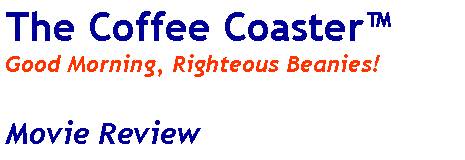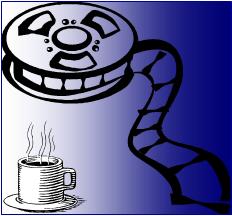

|
 |
Inside Job
|
Please go to the new Coffee Coaster site implemented more gracefully in Wordpress. This page: http://brianrwright.com/CoffeeCoasterBlog/?p=3511 |
Matt Damon ... Narrator (voice)
William Ackman ... Himself
Daniel Alpert ... Himself
Jonathan Alpert ... Himself
Ben Bernanke ... Himself (archive footage)
George W. Bush ... Himself (archive)
John Campbell ... Himself
Satyajit Das ... Himself
Jerome Fons ... Himself
Barney Frank ... Himself
Timothy Geithner ... Himself (archive)
Alan Greenspan ... Himself (archive)
Barack Obama ... Himself (archive)
Hank Paulson … Himself (archive)
Eliot Spitzer ... Himself
Larry Summers ... Himself
Scott Talbott ... Himself
Paul Volcker ... Himself
Henry Waxman ... Himself (archive)
George Soros: Chuck Prince of Citibank famously said: 'That we have to dance until the music stops.' Actually, the music had stopped already when he said that.
Frank Partnoy: You're gonna make an extra $2 million a year, or $10 million a year for putting your financial institution at risk. Someone else pays the bill, you don't. Would you make that bet? Most people on Wall Street said, 'Sure, I'd make that bet.'
Christine Lagarde: And l clearly remember telling Hank: 'We are watching this tsunami coming, and you're just proposing that we ask: "which swimming costume we're going to put on."'
Interviewer: What was his response? What was his feeling?
Christine Lagarde: 'Things are under control. Yes, we are looking at this situation carefully, and, yeah, it's under control.'
Robert Gnaizda: Addressing Obama and, quote, 'regulatory reform' - my response, if it was one word, would be 'ha!' There's very little reform... It's a Wall Street government.
As many of you know that instead of the PTB (powers that be) I now prefer to name the <central controlling entity> 'the Borg.' And I have what I consider excellent reasons. But whatever term you use, Inside Job does fine work showing you the face—well, the visible face, the public men—who pull the levers behind the Curtain... and who feast at the Table. Take a cursory view of the cast in the list above. A few of them are good guys, ones who blow the whistle on bad behavior, but most are key players in the largest single forced (and shadowy) wealth transfer in human history. Many show up in Matt Taibbi's article in Rolling Stone, the Dirty Dozen.[1]
We're talking about the $700 billion Bailout of 2008 under TARP[2], in which banks and other financial investment firms received taxpayer funding and backing to that level, because the institutions were "too big to fail." The true amount of taxpayer funding, according to research of Bloomberg News, to 'troubled banks' and firms under all federal programs is $12.8 trillion. And here's the clincher: so far we do not know to whom or what the $12.8 trillion of taxpayer funding and guarantees have gone, or what was collateral to the taxpayer funds committed!!! Let's just say $700 billion is big enough potatoes to be concerned about, and the movie does a fine job skewering those responsible for the scam of all time.
Narration is by Matt Damon, which lends a vigorous, smart authenticity to the presentation. For a reason I haven't completely noodled out, the documentary begins with the destruction, by international banks and corporations, of the Icelandic economy; I don't recall whether the film closes the loop at the end by connecting the Iceland situation with the US situation. But Inside Job builds its case from the beginning, with the Glass-Steagall Act, which as a result of the financial collapse of 1929 made it illegal for depository banks—handling mortgages and other common loans to the people—to act as Wall Street investment firms. Slowly but surely, and accelerating in the latter two decades of the 20th century, the floodgate was opened by the government to multiple risky ventures adored by hard-charging crony capitalists... who seek government-assured interest rates like junkies crave lifetime supplies of crack cocaine.
The movie doesn't draw an explicit relation between investment scams and the central monopoly on money and banking: the US Federal Reserve System. Yet it seems straightforward to understand how general debasement of a currency through central banks makes money seem 'easy' and manipulable by those closest to the printing presses. Further, chief scam artists and enablers occupy or occupied Treasury and the Fed—e.g. Paulson, Greenspan, Bernanke, Summers, Geithner. None of these gangstas acceded to be interviewed for the documentary, and why should they? Their hands are so far into the collective cookie jar that to be interviewed would push them within a genital hair of getting handcuffed and frog-stepped to Leavenworth in orange jumpsuits... a fitting and just resolution, only to be hoped for.
Will it ever happen? As the film points out, not one prosecution has taken place for the creation of fraudulent—mostly mortgage derivatives— investment vehicles and their approval as high-grade investments by government and private institutions. Not one. Anyone who questioned predatory lending practices on shaky investments (such as former New York attorney general Eliot Spitzer) was hung out to dry—Spitzer's frequenting of high-priced prostitutes was brought to light and led to his resignation as governor of New York. The Borgsters don't suffer naysayers gladly. Interestingly, Spitzer has a significant presence in Inside Job, and IMHO[3] would be a likely candidate for leading a class-action suit by the citizenry to recover these $trillions ripped off by the MOPS.[4] Or possibly a criminal case before a federal grand jury.
Many libertarians look the other way when it comes to government granting special privileges to corporations, and I must admit that in my youth I failed to make the distinction between state-and-federally privileged corporations and free market nonprivileged businesses. [The original legitimate concept of the corporation was as a state-chartered (in the sense of democratically controlled) capital-formation company normally for shortlived public purposes, such as building bridges, roads, or other infrastructure. Once the project finished, so, too, did the corporation. The idea of a perpetually royally chartered corporation, such as the East India Company of England, was anathema to the colonists. But that is exactly the kind of corporation that exists today via Grand Theft Wall-Street-O.]
Thus the point—often opposed by libertarians—is that certainly 'royal' corporations such as Goldman Sachs and the banksters may be legitimately regulated by the state (on behalf of the people)... thus making Glass Steagall and other such measures to prevent cockamamie-treadmill-schemes-chasing-irrational-debt entirely reasonable. Of course, one might argue as an idealist that withdrawal of the 'royal' corporate privilege is the better answer, and I agree. Further, a true free market in investments would produce sounder investments because people would make no assumptions about being protected by government. Voluntary certification entities would abound, and, like Underwriter's Laboratories or Consumer Reports, their reputation would rest on their absolute integrity.
My personal pet peeve is dealt with in the movie: why in the hell did these supposedly private investment ranking companies, such as Moody's and Standard and Poor's, give triple-As to such utter crap securities? Well, clearly they were in on the scam, the rewards were too good to pass up. If Inside Job doesn't lead to a Jeffersonian Revolution—refreshing the Tree of Liberty with the blood of tyrants and pirates—nothing will.
[1] The full article appears to have been removed from Rolling Stone, so the link is for a summary on a referencing page.
[2] Troubled Asset Relief Program
###
2011 July 13
Copyright © Brian Wright | The Coffee Coaster™
Inside Job | Alan Greenspan | Grand Theft Wall-Street-O |
Glass Steagall

| Publish Fee: $25 Donation |  |
|||
| |
Sign up for Silver Circle Newsletter here  Main | Columns | Movie Reviews | Book Reviews | Articles | Guest |